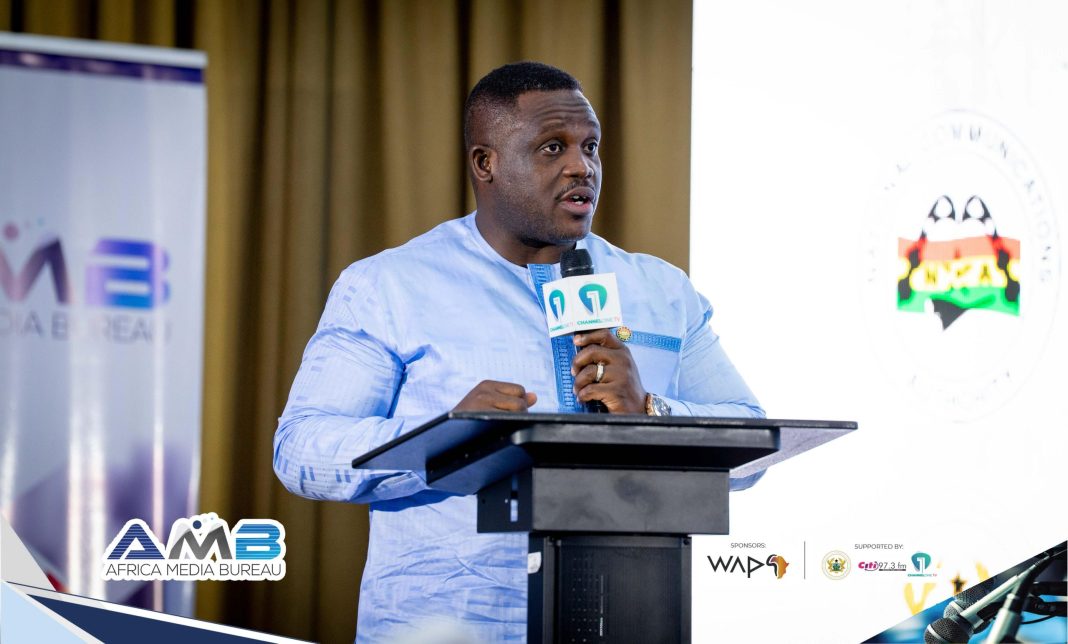The Minister for Communication, Digital Innovation and Technology, Sam George, has announced that the government will soon engage stakeholders to develop a sustainable funding arrangement for the country’s Digital Terrestrial Television (DTT) transmission network.
Established in 2016 under the leadership of then Minister Edward Omane Boamah, the DTT platform was designed with a cost-sharing strategy.
TV stations were to enjoy free access in the first year, pay 50% of fees in the second year, 75% in the third year, and eventually bear the full cost.
The minister, while speaking at the “Broadcasting at the Crossroads” forum organised by the Africa Media Bureau at the Alisa Hotel on Friday, September 26, 2025, noted that the policy was not fully implemented.

An attempt, he said, by a previous administration to introduce fees was challenged in court by the Ghana Independent Broadcasters Association (GIBA).
As a result, the over 45 stations currently using the platform have not paid for operations and maintenance for nearly a decade.
The Minister stressed that the government has been carrying the entire cost of running the platform, effectively subsidising private broadcasters, a situation he described as unsustainable.
“The free ride bus is running out of gas, and we need to find a sustainable means of fueling the DTT bus,” he said.
Sam George added that with demand for slots on the platform increasing, the government is working on expansion.
At the same time, it will initiate discussions with broadcasters on how they can contribute to keeping the service operational and financially viable.
A stakeholder meeting will soon be convened to agree on a practical cost-sharing model to sustain the DTT ecosystem.
Ghana to review broadcasting policy to address digital convergence – Sam George
